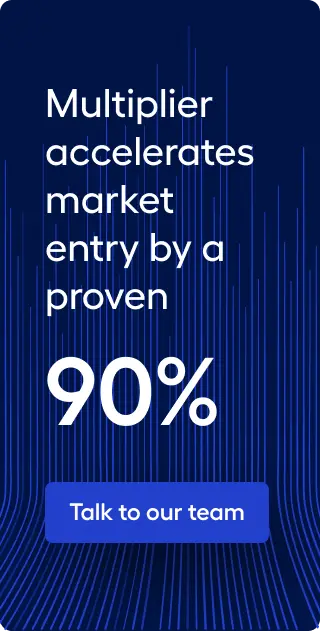What is Employer of Record Payrolling?
The process of paying your employees through an EOR is called Employer of Record Payrolling. An Employer of Record is an organization that helps you hire global talent even if you do not have physical entities in each country. They hire candidates on your behalf and provide support right from onboarding to the offboarding of that candidate. Working with employer of record payroll services is one of the most efficient ways of expanding your team globally. Hiring international employees and taking care of their payments is highly time-consuming. Moreover, you need a dedicated legal team to ensure that the organization stays compliant with the labor codes of each country where you have your employees. Handling multiple international employees even with the most efficient and structured teams might raise issues as there is a lot of room for errors, which can prove very expensive. Employer of Record payroll services have their entities in multiple countries across the world, where they can hire employees on your behalf. For example, if you want to hire a UX Designer based in the Netherlands, you can simply partner with an EOR and onboard this employee. The EOR will employ your worker on your behalf and will charge you a fee. During the course of the employment, the employer of record will keep paying your employee on your behalf in their local currency. The EOR will also ensure that the right taxes and social security deductions are regularly made from the salary. An Employer of Record Payroll service takes care of everything, including payroll, legal challenges, employee management, and benefits. Employers of record are often confused with payroll services; however, these two are very different in nature.How are Employer of Record Payroll Services different from general Payroll Services?
Employer of record payroll services have a completely different goal when compared to general payroll services. An Employer of Record Payroll service aims to help you expand your team globally. They enable you to hire candidates 10,000 miles away and ensure you stay legally compliant through every step. A few key differences between these services are- Different goals: A payroll service can be similar to an employer of record service when it comes to just payroll. Payroll services usually focus on developing new technologies and softwares that bridge the gaps and inconsistencies a company might have in its internal payroll system. In hindsight, a payroll service will simply collect your employees’ data from you and process the payroll at their end. On the other hand, an EOR provides many more services along with payrolling. An EOR helps you onboard, retain, maintain and pay your employees. An EOR will also help you sail through complicated paperwork and generate compliant contracts on your behalf.
- Benefits management: Payroll services focus solely on timely payments to your employees. Adding extra benefits and bonuses will still be your responsibility. EOR services such as Multiplier help you stand apart in the business by enabling you to provide your employees with multiple benefits such as insurance, joining bonus, performance bonus, etc. EORs can also help you allocate ESOPs (employee stock options) to your employees in a few simple steps.
What do Employer of Record Payroll services do?
Employer of record payroll services handle all crucial tasks related to payroll and some HR-related tasks, including but not limited to the following:
- Employee Management: These services help you manage your international employees through a dashboard. You can track your employees’ payments, leaves, benefits, and even performance.
- Onboarding and Offboarding: An employer of record will help you generate all the necessary documents during onboarding and offboarding. This is crucial because many countries have specific legal requirements regarding employment contracts. Employer of record payroll services ensure that the employment contract complies with local laws and regulations.
- Payroll: Employer of record payroll services enable payroll in multiple countries across the globe. All you need to do is pay your EOR service provider one amount in one currency. The employer of record will calculate and disperse the payroll in all the required currencies. This eliminates the constant monitoring of exchange rates. It also eliminated the added costs of transferring money overseas.
- Stays Compliant: One of the most important tasks an EOR payroll service handles is staying compliant. They have dedicated legal teams who are constantly updated with the labor codes of each country. One of the most important aspects of compliance is payroll deductions. EOR payrolling ensures all the necessary deductions like taxes, social security, pension, etc., are made on your behalf.
While knowing what an employer of record service does for you is important, it is also important to know what this service does not/should not do for you.
What an EOR Payroll Service does not do
A major difference between a payroll service and employer of record payrolling is that an EOR can also handle some HR-related tasks. Well, this may cause some confusion, so here are a few things an EOR does not do:
- Decide the terms of the employment contract: The EOR only helps you generate a legally compliant employment contract. The employer decides the terms of employment, period (if any), compensation, time-off, etc.
- Make HR Strategies: An EOR service will not help your internal HR team develop employee engagement or retention strategies. While some EOR services may offer HR strategies in the package, it is not generally a part of the service.
- Make Hiring/Firing decisions: An EOR has no right to make the decision of hiring or firing a candidate. Similarly, though an EOR can help you track leaves and performance, it will not help you rate the performance of your employees.
Employer of Record Payrolling can take care of legal and administrative tasks, and your internal HR teams still have full control of strategic decisions.
Benefits of Employer of Record Payrolling
Some of the benefits of working with an Employer of Record payroll service include:
- Time Saving: An employer of record handles all the administrative and compliance issues related to payroll. This helps your internal HR team save a lot of time and energy. Keeping track of all payroll taxes, deductions, and all legal aspects manually would surely take up a lot of time and resources.
- No compliance issues: Employers of record have dedicated teams that ensure that clients stay free of any compliance issues. Keeping track of the labor code of a handful of countries is manageable. However, when you build global teams, it gets very difficult to keep up with all the advancements in the labor laws of each country.
- Leave Tracking: EOR dashboards help you see when each of your international employees is on leave. In some cases, you can even approve/decline a leave request at your discretion.
- Access to Global Talent: The main benefit of working with international employer of record payroll services is that you can hire anyone from any country in the world. This helps you tap into the global talent pool and choose the best. A global team helps your organization get different perspectives and build a strong culture.
- Reduced payroll expenses: Employer of record payrolling helps you avoid hiring large teams, including payroll and legal teams. Moreover, it helps you avoid the infinite hours of paperwork of hiring internationally. The most important cost saved here is having a local entity. With an EOR, you do not need to have an entity in a country where you want to hire. This saves hundreds of thousands of dollars for each country you expand into.
- Data Security: An employer of record payroll service carries with itself a lot of sensitive data on both their employees and their clients. A lot of this data includes confidential information like bank account details, personal identification, etc. Keeping all this information secured and encrypted is one of the most important responsibilities of any employer of record payroll service.
Make Multiplier your EOR partner
Multiplier is a tech-based EOR with entities in over 120 countries. Partnering with us will give you unlimited access to our resources and partners across the globe, enabling you to expand into any country you can imagine.
We give end-to-end support from onboarding to offboarding. We will generate employment contracts with a few clicks and onboard your employee before you know it.
Our SaaS product presents all the information about your international employees on one easy-to-use platform. You can easily manage and pay employees anywhere in the world without worrying about setting up a local entity.
Our user-friendly dashboard gives you visibility of all employees, their payments, and other important information.
Multiplier enables you to stand out from the crowd and offer your employees benefits like insurance, performance bonus, joining bonus, and employee stock options.
Thanks to our extensive legal team, you will always stay compliant will the local laws in every payment you make using our platform.
Talk to our experts. Go global now!
Frequently Asked Questions
Q. How does an EOR handle payroll taxes and compliance across different states or countries?
An Employer of Record (EOR) assumes legal responsibility for employment-related tasks, including payroll processing, tax filing, and staying updated with local laws and regulations. Companies do not have to set up an entity to onboard employees in a given state or country when using an EOR. The system will ensure that employees from multiple locations receive accurate and timely payments to avoid penalties for non-compliance.
Q. What is the process of setting up an employer of record payroll?
Setting up an EOR generally starts by reaching out to service providers about the solution they offer. With Multiplier, we offer free demos for companies to see the landscape and features of the software, giving them an idea of how an EOR can be tailored to fit their processes. After that, businesses may inquire about the pricing and other details that will help secure their decision of availing the services. It will then be reflected in the contract that companies must sign before giving access to the EOR facility. Once finalized, clients will be trained on how to use an EOR to onboard new employees.
Q. How does an EOR handle employee expenses and reimbursements?
An Employer of Record (EOR) can handle employee expenses and reimbursements, including travel expenses, supplies, and other business-related costs. The EOR ensures compliance with tax regulations and provides guidance on expense policies. Depending on the agreement with the client, the EOR may handle the reimbursement process directly or provide support and guidance to the client’s internal team.
Q. Can an employer of record offer payrolling services for employees and independent contractors?
Yes, an Employer of Record (EOR) can offer payrolling services for employees and independent contractors. However, it is important to note that the different classifications of workers can have varying legal and financial implications. Therefore, ensuring proper classification and compliance with applicable laws and regulations is essential.
Q. Can an employer of record payrolling service help manage benefits and other employee compensation packages?
Yes, an Employer of Record (EOR) payrolling service can help manage benefits and other employee compensation packages. It can provide access to employee benefits, such as healthcare, retirement plans, and other perks, and handle related tasks, such as enrollment and administration. An EOR can manage other forms of compensation, such as bonuses and commissions, and ensure compliance with applicable laws and regulations.


